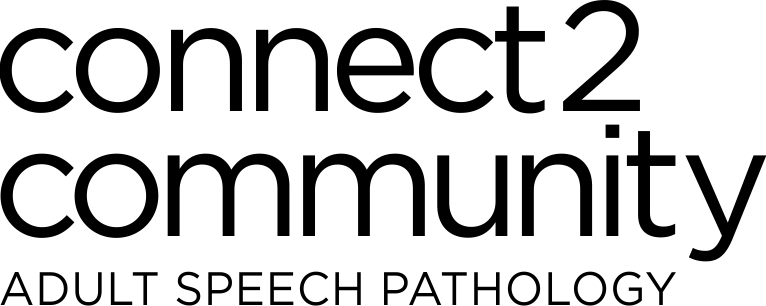

Acquired NEUROLOGICAL Communication DisorderS
cognitive Communication disorderS
TRAUMATIC BRAIN INJURY
What is Traumatic Brain Injury?
Traumatic brain injury happens when a sudden, external, physical assault damages the brain. The damage can be focal (confined to one area of the brain) or diffuse (damage to more than one area of the brain). Traumatic brain injury can also be described as an open or closed head injury. The severity can range from a mild concussion to a severe injury. Given that impairments in communication for individuals with traumatic brain disorder are often related to underlying impairments in cognition, they are commonly referred to as a cognitive-communication disorder.
What are the causes of Traumatic Brain Injury?
There are many causes of traumatic brain injury including motor vehicle accident, falls, sporting injuries, violence, and blast/military combat injuries. A traumatic brain injury causes impairments in language and other cognitive areas that affect communication (thinking, memory, emotions).
Areas of communication that can be affected after Traumatic Brain Injury
Comprehension (listening)
- Processing abstract language or figurative language/concepts e.g., metaphors (e.g., The night sky was a blanket of stars) and idioms (e.g., It’s raining cats and dogs)
- Interpreting the subtleties of conversation e.g., humour or sarcasm, jokes
- Interpretation of nonverbal communication e.g., facial expression
- Auditory processing time e.g., difficulties with processing conversation (worse in group settings and distracting environments)
Spoken expression
- Word finding difficulties
- Discourse tasks e.g., conversation, narrative, picture description, procedural and difficulties with organisation, content (too much or too little), making sense as a whole (coherence), confabulation (elaborating with less truthful facts), using story grammar (a beginning, middle and end structure)
- Slowed responses
- Perseveration of responses (same verbal responses used in discourse)
Social communication
- Conversational topic selection and maintenance (e.g., incorrect topic for context), marked by verbosity (too much extra information)
- Initiating conversation
- Producing and interpreting nonverbal communication (e.g., facial expressions and body language)
- Turn-taking in conversation
- Tone of voice
Reading comprehension
- Can mirror comprehension (listening)
- Figurative language (e.g., metaphors, idioms, and simile e.g., I slept like a log)
- Complex and lengthy sentence structures
- Visuospatial/perceptual deficits (impacting reading)
Written expression
- Can mirror spoken expression difficulties
- Visuospatial/perceptual deficits (impacting writing )
It’s important to be aware of the following:
- Even a mild traumatic brain injury can impact function in daily living, return to vocational pursuits, and participation in desired activities (social participation, interpersonal activities).
- Informed carers are vital members of the therapy team
How can connect2community speech pathology help?
A speech pathologist can:
- Identify a holistic profile of a client’s communication needs and ability
- Collaborate with client and family members towards person-centered therapy goals
- Discuss therapy options specific to the client’s communication needs and goals
- Provide treatments that meets the client’s communication needs and goals. All treatments focus on real-life, meaningful situations and tasks to enhance success in communication.
- Provide communication partner training for the individual with traumatic brain injury and their close communication partner/s. Knowledge and use of facilitative strategies by communication partners can enhance successful conversation.
- Identify barriers and facilitators within the person’s communication environment, with the goal being – how to best support communication for the person with traumatic brain injury within their community.
- Provide traumatic brain injury specific education for the client and family
Please contact connect2community speech pathology if you have any concerns or questions regarding traumatic brain disorder or a recent diagnosis of traumatic brain disorder.
PHONE 0411 864 386
EMAIL info@connect2community.au
